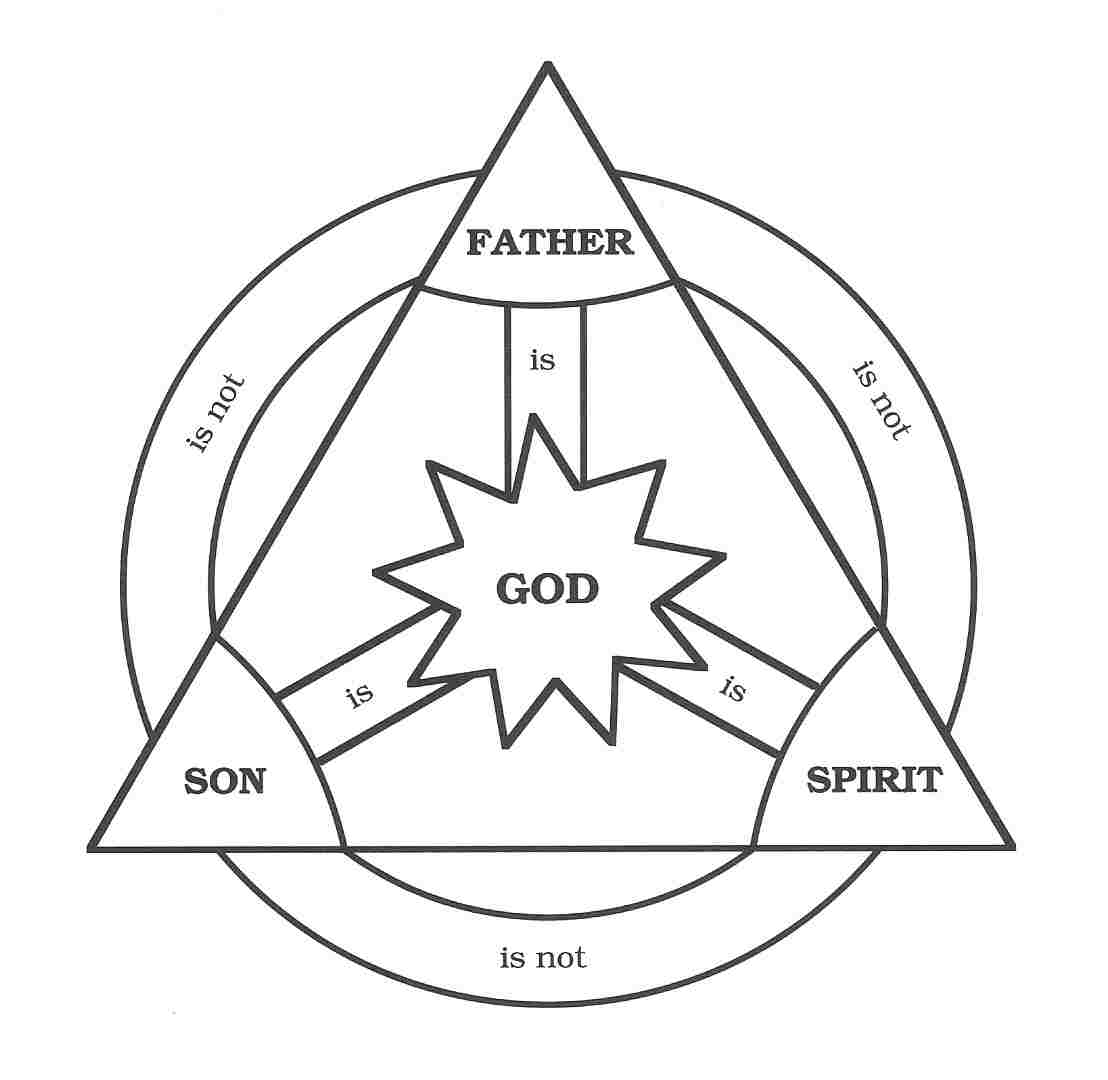 |
The Trinity
|
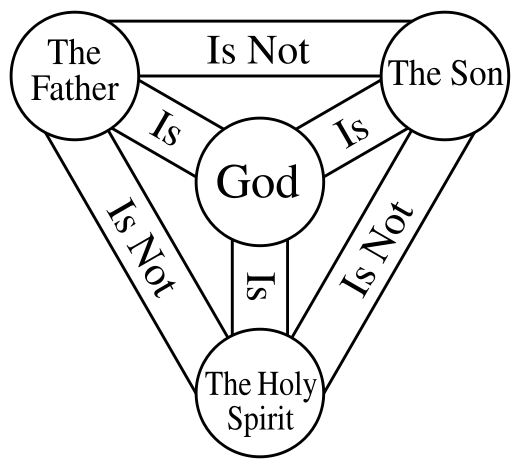 |
 |
The Trinity
|
 |
Although the word "Trinity" does not occur in the Bible, the theological concept of the One God consisting of Three Divine Persons (Father, Son, and Holy Spirit) is founded upon various New Testament texts.
Christians have traditionally also seen the Trinity foreshadowed or alluded to in certain Old Testament texts.
How can God be both one being and three persons?
How can Christians both claim to be monotheists (believing in only one God) and also understand God as a triune deity (a unity of three "persons": Father, Son, and Holy Spirit)?
This only makes sense if one understands that there are different types of "unity" or "oneness"!
One must distinguish between "oneness as uniqueness, separateness, aloneness" in contrast to "oneness as unity within diversity."
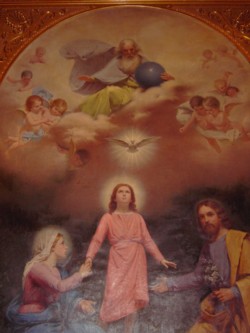 Trinity in the Creeds of the Church:
Trinity in the Creeds of the Church:Throughout Christian history, the Trinity has been depicted in many different ways:
as three identical human figures, three different human figures, two different human figures and a dove, or even two identical human figures and a dove.
Moreover, the Trinity has also been symbolized with various geometric, architectural, and natural forms.
 |
 |
 |
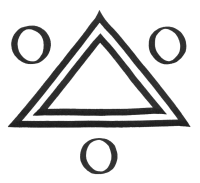 |
 |
 |
 |
| Eastern? "Holy Spirit proceeds from the Father" |
Western? "Holy Spirit proceeds from the Father and the Son" |
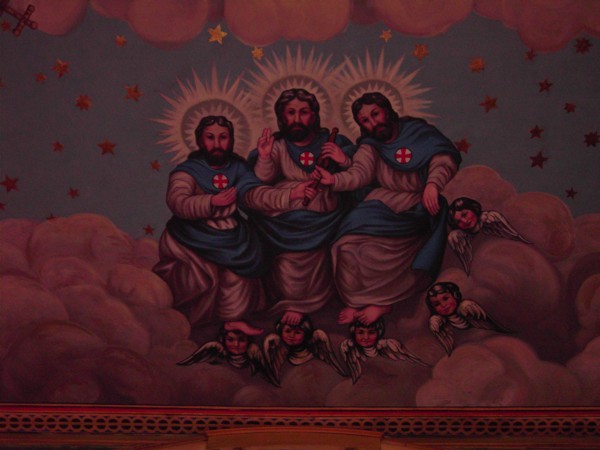 |
|
Conceptions of the Trinity: East vs. West
|
|
||||||||||||
Orthodox Christian East: |
Catholic Christian West: |
||||||||||||
The "Solemnity of the Most Holy Trinity" is celebrated annually on the Sunday after Pentecost.
The following biblical readings are
prescribed in the Roman Catholic Lectionary for Mass:
| Readings | Biblical Reference | Brief Description |
| YEAR A: | ||
| First Reading: | Exod 34:4b-6, 8-9 | The LORD reveals himself to Moses as "a merciful and gracious God." |
| Responsorial Psalm: | Dan 3:52, 53, 54, 55 | "Glory and praise forever." |
| Second Reading: | 2 Cor 13:11-13 | Letter Conclusion: "The grace of the Lord Jesus Christ, and the love of God, and the fellowship of the Holy Spirit be with all of you." |
| Alleluia Verse: | cf. Rev. 1:8 | "Glory to the Father, the Son, and the Holy Spirit, the God who is, who was, and who is to come." |
| Gospel: | John 3:16-18 | "God sent his Son that the world might be saved through him." |
| YEAR B: | ||
| First Reading: | Deut 4:32-34, 39-40 | Moses reminds the people: "The LORD is God in the heavens above and on earth below, and there is no other." |
| Responsorial Psalm: | Ps 33:4-5, 6+9, 18-19, 20+22 | "Blessed the people the Lord has chosen to be his own." |
| Second Reading: | Rom 8:14-17 | "You received a Spirit of adoption, through whom we cry, 'Abba, Father.' " |
| Alleluia Verse: | cf. Rev. 1:8 | "Glory to the Father, the Son, and the Holy Spirit, the God who is, who was, and who is to come." |
| Gospel: | Matt 28:16-20 | The risen Jesus commissions his disciples to make disciples of all nations, "baptizing them in the name of the Father, and of the Son, and of the Holy Spirit." |
| YEAR C: | ||
| First Reading: | Prov 8:22-31 | "Before the earth was made, Wisdom was conceived." |
| Responsorial Psalm: | Ps 8:4-5, 6-7, 8-9 | "O Lord, our God, how wonderful your name in all the earth." |
| Second Reading: | Rom 5:1-5 | "...we have peace with God through our Lord Jesus Christ..." "...the love of God has been poured out into our hearts through the Holy Spirit..." |
| Alleluia Verse: | cf. Rev. 1:8 | "Glory to the Father, the Son, and the Holy Spirit, the God who is, who was, and who is to come." |
| Gospel: | John 16:12-15 | Jesus tells his disciples: "Everything that the Father has is mine; ...he [the Holy Spirit] will take from what is mine and declare it to you." |
![]()
Return to the HOME PAGE of Prof.
Felix Just, S.J.
This page was last updated on
May 29, 2023
Copyright © 2010--2023